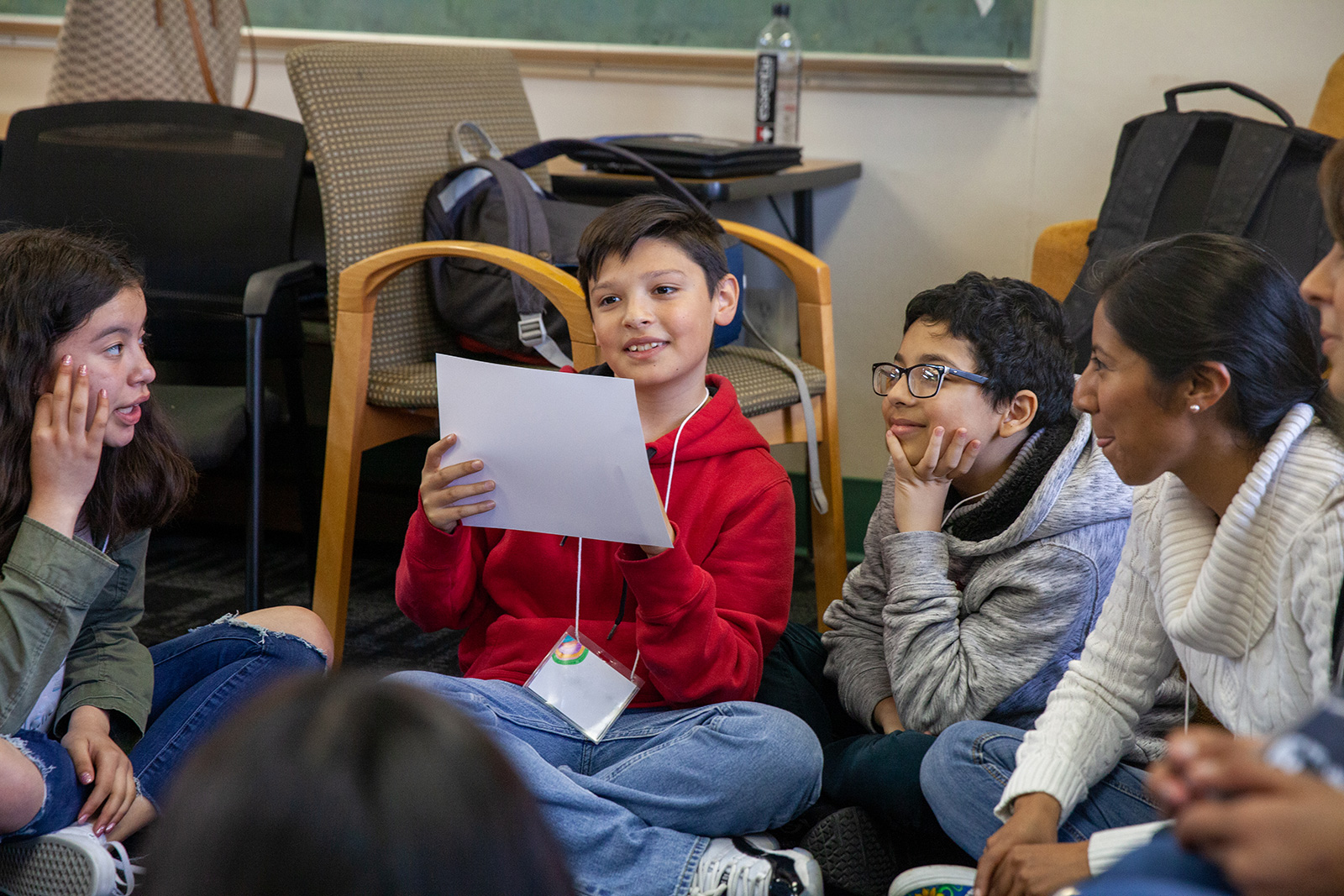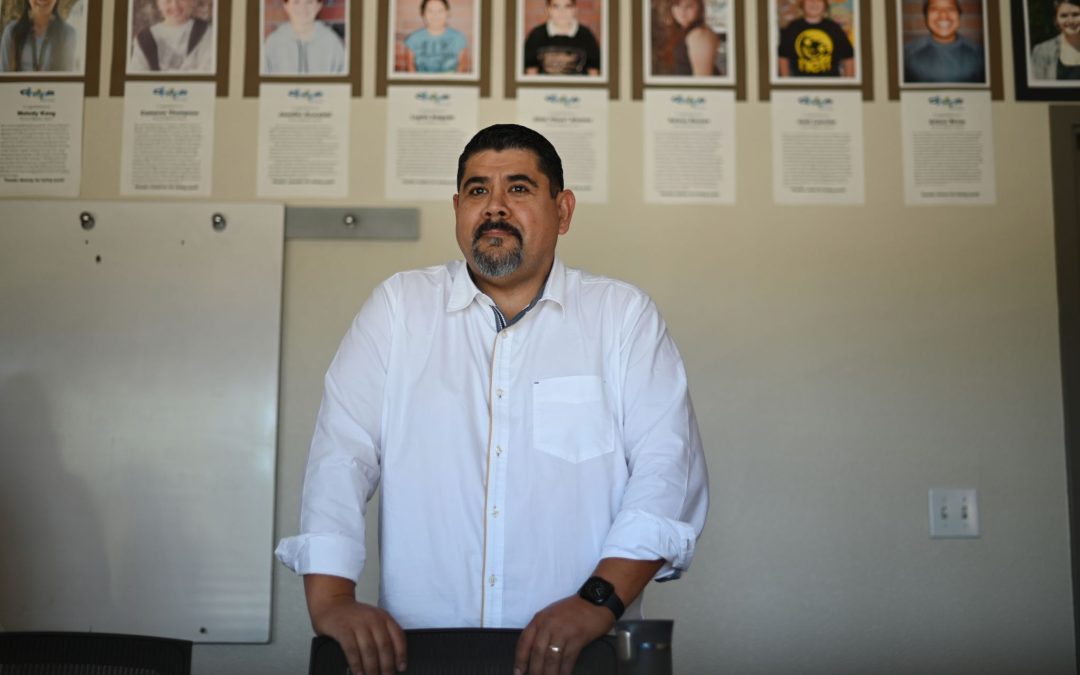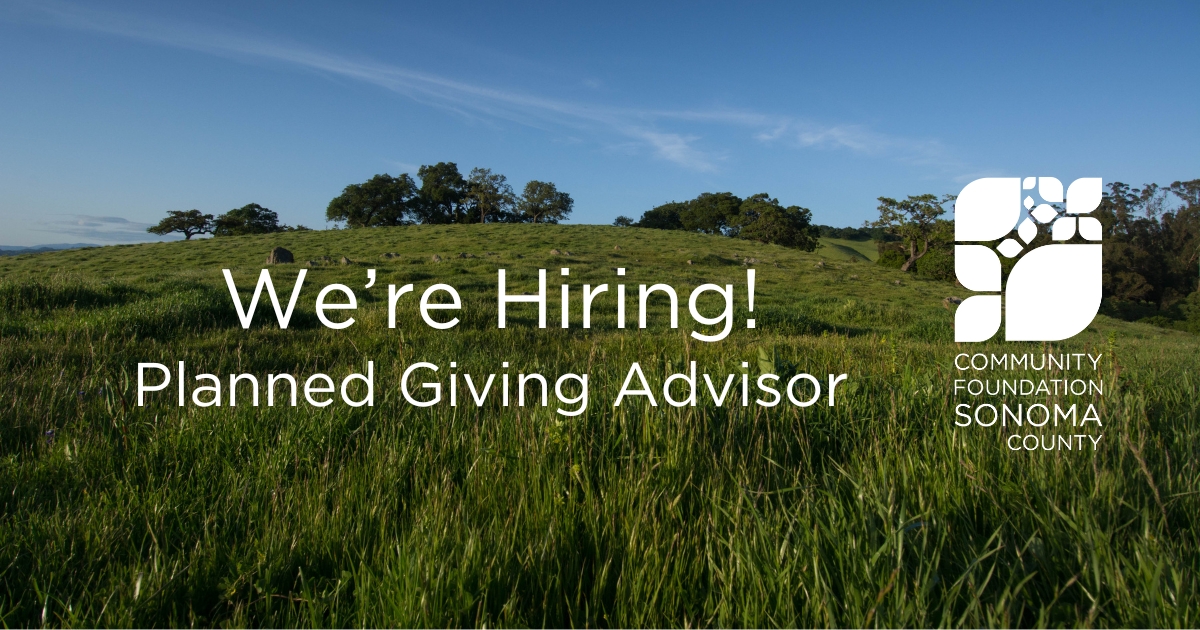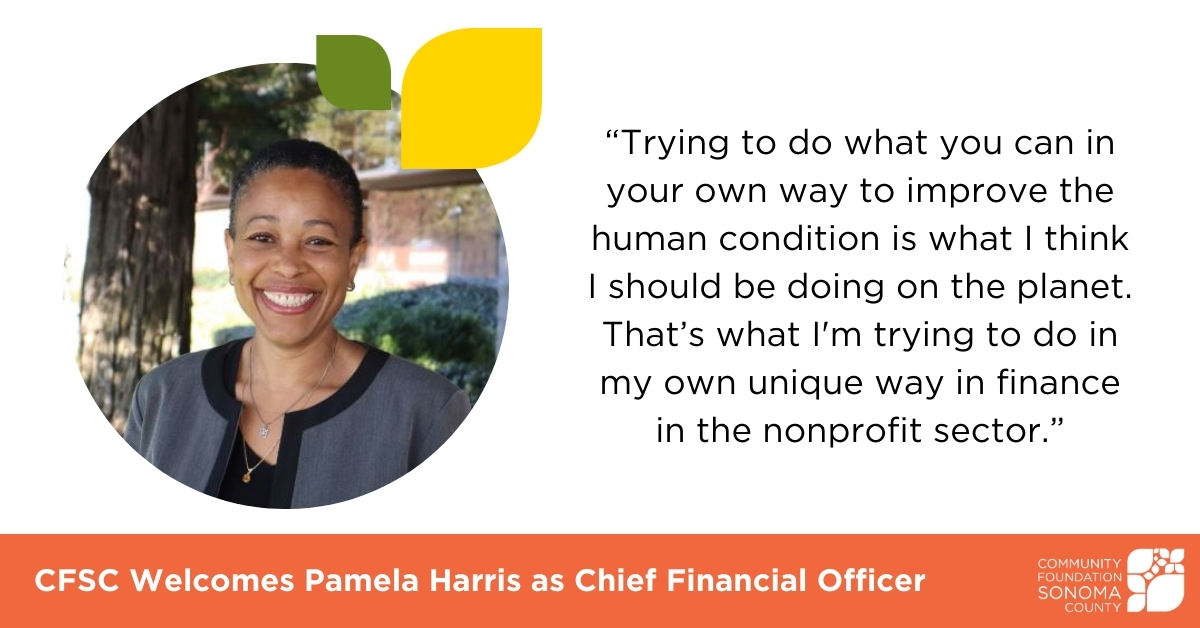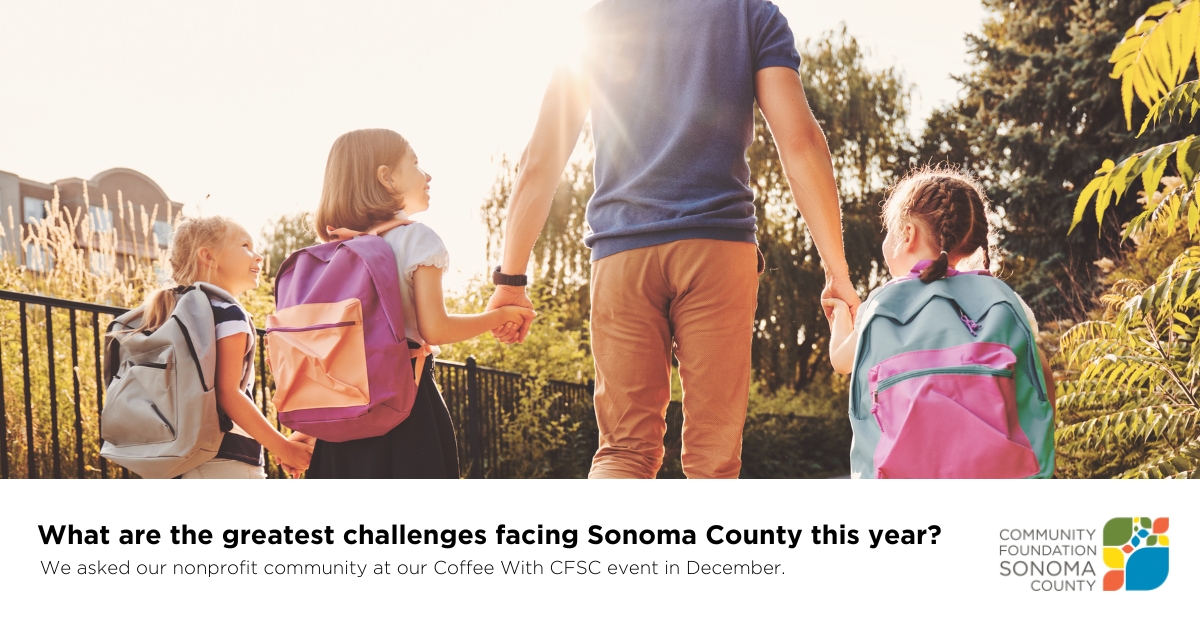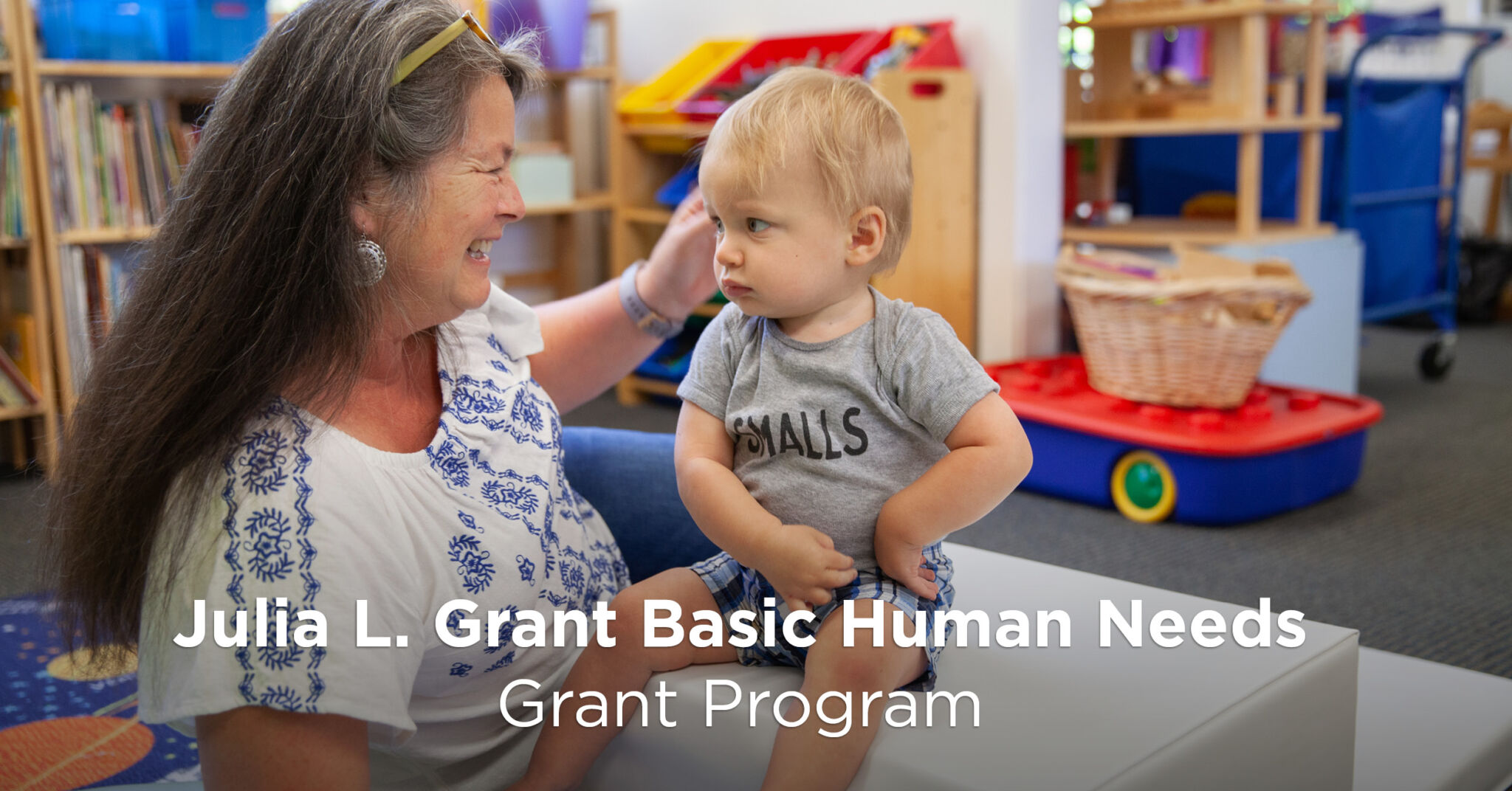“YouthTruth is changing how sites and districts do school,” says Jessica Progulske of the Sonoma County Office of Education (SCOE).
The YouthTruth survey is a national effort to gather student and stakeholder feedback to inform school improvement. It asks students, teachers, and parents about a range of issues, including engagement, relationships, culture, belonging, college and career readiness, and mental health.
While the idea to bring YouthTruth surveys to our region was first raised—and funded—by the Hewlett Foundation in 2017, this initiative has been a truly collaborative venture from the start, with CFSC acting as a local partner with the Hewlett Foundation and, later, bringing the Career Technical Education (CTE) Foundation to help foster school participation.
“We immediately saw the promise in the data,” says Karin Demarest, CFSC’s vice president for community impact. “Understanding what students are facing helps funders be more impactful, especially as we learn how COVID and the local fires have affected youth.”
Over the past several years, CFSC, and other funders, including SCOE, have provided significant funding to expand the surveying efforts from five schools and 4,500 students in 2018, to more than 60,000 students, teachers, parents, and guardians at 130 schools in 2022.
Today, the YouthTruth surveys offer funders, schools, and community organizations the opportunity to make more informed funding decisions, guided directly by the voices of the people most affected.
DATA-DRIVEN CHANGE
Learnings from the survey are already influencing education-related efforts. SCOE developed an entirely new behavioral health department based on YouthTruth results showing that students need more support around mental health.
According to Jessica, who is SCOE’s director of data and engagement, YouthTruth data also plays a key part in how school districts allocate their state funding. “In Windsor, for example, they shifted some of their priorities to hire more counselors as a result of the YouthTruth data,” she says.
“Literally, what a district decides to do—how they decide to hire who they hire, what services they provide, and how they spend their money—is being informed by the YouthTruth survey.”
COHORTS OF SUPPORT
Starting in 2022, partnering with SCOE and CTE Foundation, Community Foundation Sonoma County helped launch a three-year cohort program to support schools to take informed action. The cohort of 10 school site and district teams will work with community-based organizations and industry partners to implement new programs and activities targeted to address issues discovered in the data.
“We see an opportunity to match and support these schools based on the data they’re receiving around engagement, relevancy, and college and career readiness,” explains Kathy Goodacre, CEO of the CTE Foundation. “If they need employers to come in and work with them to help address and improve this—that’s our role. The Community Foundation is also helping to rally and bring together community-based organizations that can support schools.”
“Schools will not be alone, as they often have been in the past, in trying to figure out how to do school differently,” Jessica says. “They’ll be supported by folks from our community who have expertise in their area of focus to try to enact meaningful change.”
PARTNERSHIPS IN PRACTICE
Each cohort member is using the data to establish a singular area of focus where they hope to make a change.
At the Sonoma Valley Unified School District, for example, a cohort of site- and district-level administrators and counselors are looking at the responses to questions about belonging and peer collaboration. They hope to understand how they can better support students who reported earning mostly D’s or below and will be focusing on improving teacher–student relationships by fostering connections at school.
To support innovative approaches to addressing these areas of focus, CTE Foundation and CFSC will bring in industry and community partners to support schools in identifying and implementing the changes they can make.
“We’re very hopeful these partnerships will have a meaningful impact,” Karin says. “I hope our donors and other people who care about youth will look at the data and try to help, too. We can’t expect schools to fix everything. We need to take action as a community—this is all of our responsibility.”
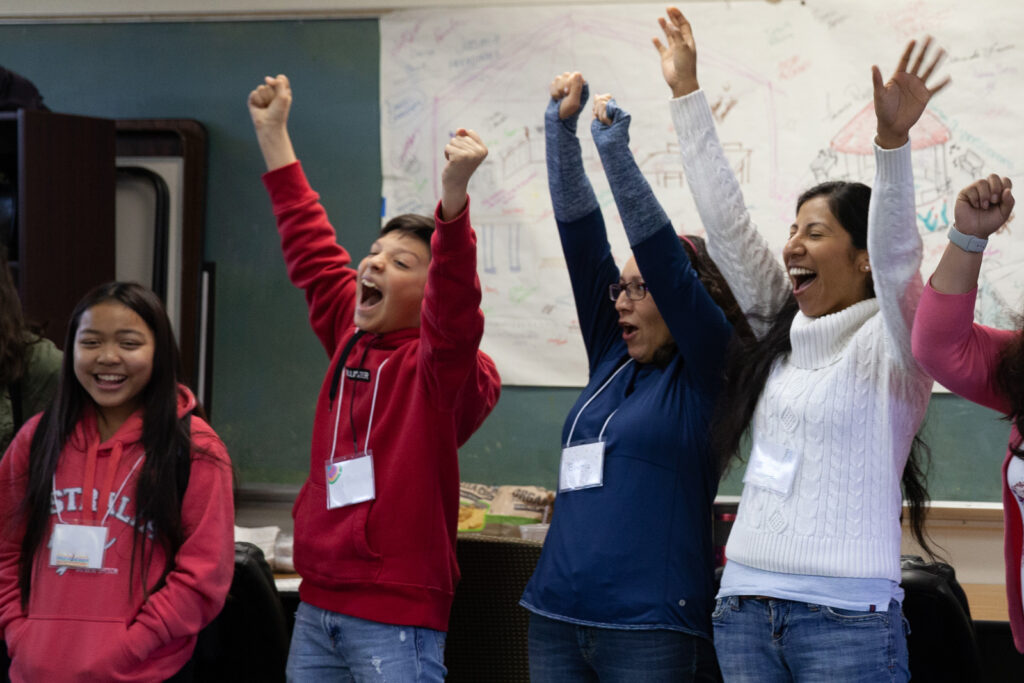
Students at Lincoln Elementary participate in a classroom activity hosted by nonprofit La Plaza, 2019.

